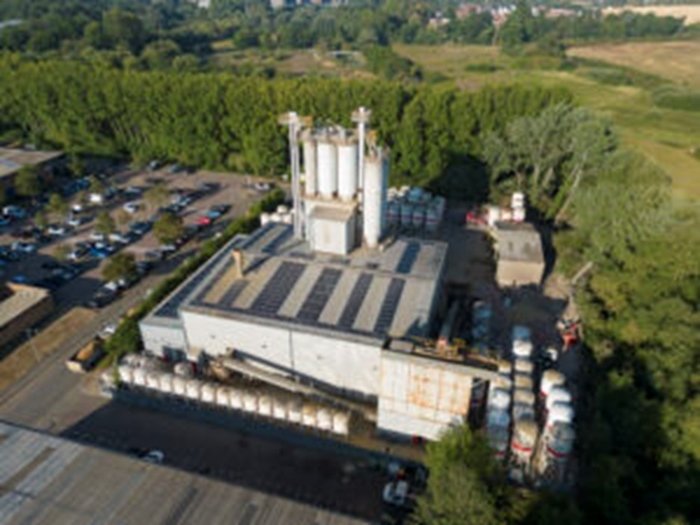
CPI EuroMix has significantly cut its CO2 output by installing solar panelling at four of its UK production sites.
A total of 353, 310Kw panels were fitted across facilities in Southampton, Harlow, Manchester and Bilston. It’s calculated the sustainable move will generate 6% of each site’s annual electricity requirement, equating to a CO2 saving of 38,000kg over standard national grid emissions.
Craig Buttenshaw, Head of Operations at CPI Euromix said: “One of our core initiatives is an investment in renewable energy. Our largescale solar panel installation is proof of that commitment. It is important to be as self-sufficient as possible, given that available certified renewable energy sources are limited. Although any energy we generate will create a small impact on a global scale, if each building materials manufacturer commits to implementing similar sustainable processes, then we’ll be taking greater strides towards a creating a cleaner, healthier environment for future generations to enjoy.”
CPI’s sustainability strategy comprises four core pillars: planet, product, people and communities. These are underpinned with an ethical approach which is considered within each of the company’s practices including training, the standards it sets and its ISO accreditations.
CPI EuroMix continues to invest in new opportunities for sustainability in respect of its production processes. It has seen the company introduce targets aimed at reducing the percentage of waste it sends to landfill each month. The programme has been boosted by CPI significantly reducing its application of single-use plastics. CPI has also set an objective to limit free emissions on its cement-based products. To achieve this, the manufacturer has instigated a series of formulation trials with its cement suppliers.
Furthermore, to support the environment, CPI founded a forestry initiative in partnership with Tillhill forestry.
Craig continued: “We are constantly exploring ways to redesign our manufacturing process, particularly in terms of waste energy capture. Likewise, we are extremely engaged with our fuel manufacturers. This will allow us to assess whether there are potential opportunities for producing alternative fuels that will further reduce our carbon footprint. Our proactive approach is integral to our drive for changes within the construction industry that will lead to a more sustainable future.”

